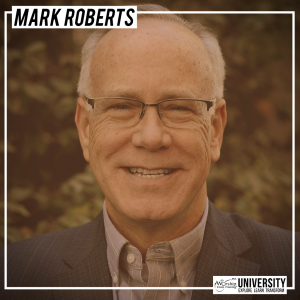Leaders, Ministry Leadership, Thursday Show, Worship Leading, Worship Theology
Mark D. Roberts and the hidden truth about everyday worship.
 #WorshipEveryday
#WorshipEveryday
Time: 35m video
Work In Worship
He made a half-hour go by in five minutes. In the very thing that worship leaders want their congregations to know, Mark D. Roberts explains the beauty that we’ve all been missing.
So how can daily worship be intergraded in what we do to give God glory?
WATCH: Mark D. Roberts – Learn how our daily work and what we do can be worship to God. Plus insights for worship leaders.
FEATURED GUEST’S LINKS:
Bio: https://lifeforleaders.depree.org/contributors/mark-d-roberts/
GUEST BIO:
Dr. Mark D. Roberts is the Executive Director of Fuller’s Max De Pree Center for Leadership. In this role, he is responsible for the mission, strategic direction, staff development, and financial sustainability of the Center. He also provides resources for the Center’s work as the principal writer of the Life for Leaders daily devotional and as a major contributor to the De Pree Center blog.
With years of experience as a pastor and non-profit leader, as well as a mentor to leaders in business and other fields, Mark is deeply committed to serving leaders in the marketplace, education, government, non-profits, arts, family, and the church. He envisions leaders flourishing in every part of their lives as well as their leadership, thus contributing to God’s work throughout the world. Mark has a growing commitment to helping leaders who are entering the “third third” of life to flourish in new ways as their relationship to compensated work changes.
Prior to coming to the De Pree Center, Dr. Roberts was Executive Director of Digital Media and Senior Director of Laity Lodge for the H. E. Butt Family Foundation in Texas. A Presbyterian pastor, he served churches in California, with a sixteen-year stint as senior pastor of Irvine Presbyterian Church.
Mark D. Roberts Devotional Preview (More Coming to WTTU!)
Avoid Empty Words (Mark D. Roberts)
Empty words. Empty words. As I reflected on Ephesians 5:6, I was struck by the phrase “empty words.” This seems like the perfect phrase for so many of the words filling our lives today. Yet obviously empty words were a matter of concern to the Apostle Paul as he wrote two millennia ago.
We don’t know exactly whom Paul had in mind when he wrote “Let no one deceive you with empty words.” The context suggests that these deceivers might have claimed that immorality, impurity, and greed were really not such a big deal. Perhaps they were Christians who misconstrued God’s grace as an opportunity for ample sinning without consequences. Perhaps they were pagans who objected to the “narrow-mindedness” and “over-reactions” of Christians who rejected activities that were common in the Greco-Roman world but inconsistent with Christian discipleship.
No matter whom Paul was thinking of when he wrote, he characterized their claims as “empty words.” Why?
The Greek word translated here as “empty” (kenos) could mean “empty” in a literal sense (see Mark 12:3, for example). In Ephesians 5:6, kenos is used metaphorically. Empty words are those that lack substance, wisdom, or truth. They are words not filled with reality or matched with action. The famed fourth-century preacher, John Chrysostom, said when preaching on this verse from Ephesians, “There are always people among us who want to diminish the force of words. . . . Empty words are words that are for a moment attractive but in no way are proved by deeds” (Homily on Ephesians 18.5.5-6.1).
Paul was concerned that the recipients of his letter might be enticed by purveyors of empty words to reject a Christ-shaped perspective on life, especially when it comes to sexuality and greed. We have no shortage of such empty words today. In multiple ways, the empty wordsmiths of our world convince us that life is best when filled with sexual exploits and lots of possessions. We can begin to be persuaded that Christian morality is outdated, irrelevant, and oppressive. Thus, Paul’s injunction to the Ephesians deserves a new hearing today: Let no one deceive you with empty words. Listen for the truth of words. Seek their substance. Pay attention to those who lives reflect the solidness of their words. Let the words you speak be full of meaning and love.
SOMETHING TO THINK ABOUT:
When you think of “empty words,” what comes to mind?
Do you find yourself tempted to accept the counsel of those who use “empty words”? When? Why?
How substantial are your words? Are they full of truth and love?
SOMETHING TO DO:
As you go about your day, pay attention to your words. Are they substantial? Are they truthful? Are they loving? Are they really worth saying . . . and hearing? Choose today to use words that are full of truth and love.
PRAYER:
Gracious God, we have no shortage of “empty words” today. We can easily get caught up in the emptiness, filling our minds and our lips with words that are insubstantial, with words that are only spoken but not lived. Help us, Lord, to reject the empty words in favor of full words, words of life that come from you. May we be people who whose words are full of truth and love. Amen
Click here to visit this article on Mark’s Site:
AVOID EMPTY WORDS, PART 1
Want More Training? Upgrade Your Membership MENTORING
 Are you called to serve? Do you know your next step? How do you get to the next level? We can help. Learn more, so you can lead others. Discover what WTT Mentoring can do for you today: wttu.co/mentoring Copyright 2019 Worship Team Training®
Are you called to serve? Do you know your next step? How do you get to the next level? We can help. Learn more, so you can lead others. Discover what WTT Mentoring can do for you today: wttu.co/mentoring Copyright 2019 Worship Team Training®









